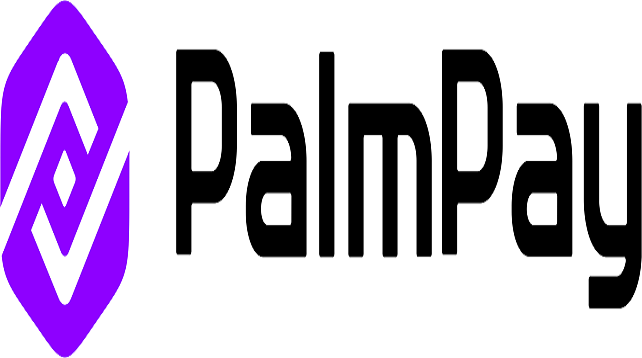E-Financial
Unleashing the Power of Conversational Banking to Redefine Customer Engagement

By Dean Baker, Squad Lead, BFSI – Infobip
Conversational banking, sometimes called chat banking, refers to the use of Artificial Intelligence (AI) and chat technology to help customers conduct traditional daily banking activities via digital communications channels on a mobile device.

Dean Baker, Squad Lead, BFSI – Infobip
Leveraging mobile messaging platforms, conversational banking has ushered in a new era of seamless and personalised banking experiences, tailored to meet the unique needs and preferences of each individual.
When conversational banking is delivered well, customers get both a more convenient and rewarding service experience. In other words, conversational banking leads to improved customer experience and ultimately improved customer loyalty.
Notably it has transformed how customers engage with their banks, providing a seamless and personalised experience using mobile messaging. However, a solid foundation for any conversational customer experience today is omnichannel communications, which is the ability to reach customers where and when they want, on their preferred channels.
Through chat apps, conversational banking provides instant, contextual, and personalised communication. Clients have the convenience of engaging with chatbots or agents 24/7 over a single platform where conversation history is saved for later reference.
An important aspect of banking is the ability to seamlessly shift the “conversation” to a human agent if and when needed while having the ability to present the engagement thus far to the agent, so as not to lose conversational context.
Conversational context
For example, should the customer have a question the chatbot cannot answer or if the customer gets stuck in the automation journey, they can be transferred to an agent with the conversational context, so the agent carries on where the conversation stopped, without the customer needing to explain everything all over again.
Choice is key and the caveat to an enhanced customer experience is to have the ability to deliver conversational banking over the customer’s channel of choice with the ability to move between channels without losing the context of the “conversation”.
One of the crucial customer benefits of conversational banking using chat apps is enabling customers to reach the financial institution whenever and wherever they may be. This will help build the trust required for successful long-term client-bank relationships.
The more a customer interacts with their bank through these conversations, the more a bank understands the customer’s preferences, habits, and needs – making it easier to personalise future transactional and promotional messages.
Conversational banking also brings various benefits to financial institutions, including speeding up time to resolution of queries or FAQs and automating the collection of data. Automation in call centres not only reduces costs but also enhances customer satisfaction, as customers who have a positive experience with a brand tend to report higher levels of satisfaction.
Revenue growth
Additionally, revenue growth can be driven through upsell, cross-sell and lead-generation efforts that can be personalised through conversational banking. Using conversational banking with AI-supported chatbots can also significantly reduce agents’ time spent on real-time support calls. Financial institutions can therefore support more customers with the same number of agents using chat apps. This reduces the pressure on customer service representatives and frees them up to handle more complex customer transactions.
AI technology plays a very important role in powering conversational banking experiences, as it enables chatbots to understand customer voice or text communications and to reply, simulating actual conversations. AI uses Natural Language Processing (NLP) to allow chatbots to determine meaning from language through common data elements.
However, the key challenge for financial institutions to overcome when looking to adopt a conversational banking journey is to choose the right communications platform and partner. Communications Platform as a Service (CPaaS) and conversational AI should give organisations all the tools they need for a great conversational banking experience. However, the key is to be able to customise these tools to align with their unique use cases and understanding of what their customers want.
The disruption within the banking sector is evident, as seen by the remarkable growth of fintech startups that have multiplied sevenfold over the past five years. Traditional banks must recognise and address these emerging challenges to remain relevant and competitive by embracing digital transformation effectively and adopting innovative strategies and new technologies to position themselves to thrive.
E-Financial
GOEs’ Remit Over ₦2tn to FG in 2024

Independent revenue remittance by the Government-Owned Enterprises (GOEs) moved from ₦200 billion in 2013 to over ₦2 trillion in 2024, Fiscal Responsibility Commission (FRC) confirmed the updated figure, on Wednesday.

FRC attributed the surge to collaboration between it and House of Representatives Public Accounts Committee (PAC).
Speaking at 2025 National Conference on Public Accounts and Fiscal Governance, held at the Transcorp Hilton, Abuja, Executive Chairman of the Fiscal Responsibility Commission (FRC), Victor Muruako, Esq however notes with concern persistent challenge despite achievements. He cited weak enforcement mechanisms, limited public awareness, and the slow domestication of the FRA at the subnational level as according to him, only 26 out of 36 states have adopted similar laws.
He advocated for the establishment of a National Fiscal Governance Framework to improve coordination and strengthen audit and oversight structures.
Muruako further underscored the need for strict adherence to constitutional provisions, particularly regarding public debt and borrowing, which remain under the exclusive legislative list. He urged federal and sub-national actors to align their fiscal policies under the renewed hope agenda of President Tinubu’s administration.
Muruako called on state and local government operators across Nigeria to adopt and fully implement fiscal responsibility laws in line with the federal framework.
The event organized by House of Representatives Public Accounts Committee (PAC), brought together key financial stakeholders to discuss strategies for promoting transparency and sustainable development in Nigeria’s public financial management.
He lauded administration’s of president Bola Ahmed Tinubu commitment to strengthening financial policies aimed at driving economic growth. He emphasized that states and local governments must “key into” the Fiscal Responsibility Act (FRA) to ensure fiscal discipline and alignment with federal financial standards.
Highlighting a critical legislative gap, Muruako noted that the FRA 2007 currently outlines 54 offenses but does not prescribe punishments for offenders. He called for the urgent amendment of the Act to include stronger penalties, thereby enhancing compliance and service delivery.
“The Act must be amended speedily for efficiency and to deliver real value to Nigerians,” he stressed.
He congratulated the PAC, led by Hon. Bamidele Salam, for hosting the conference, which he described as a pivotal step toward strengthening accountability in the public sector.
He advocated for the establishment of a National Fiscal Governance Framework to improve coordination and strengthen audit and oversight structures.
Muruako further underscored the need for strict adherence to constitutional provisions, particularly regarding public debt and borrowing, which remain under the Exclusive Legislative List. He urged federal and subnational actors to align their fiscal policies under the Renewed Hope agenda of President Tinubu’s administration.
Reaffirming the FRC’s commitment to advancing transparency and reducing financial leakages, Muruako pledged continued support to the PAC in institutionalizing sound public financial management practices.
He also congratulated the committee for securing Nigeria’s hosting rights for the 2025 West African Association of Public Accounts Committees (WAPAC) Annual Conference, describing it as a testament to Nigeria’s leadership in regional fiscal governance.
E-Financial
PalmPay Expands Access to Digital Insurance Through Strategic Partnerships

PalmPay, a leading digital banking platform in Africa has announced the launch of strategic partnerships with top-tier insurance providers to offer accessible, affordable and simplified insurance products directly within the PalmPay app.

This initiative reflects the brand’s continued commitment to deepening financial inclusion and underscores its mission to improve the wellbeing of everyday Nigerians.
With only about 8.9% of Nigerians currently covered by any form of health insurance, the country remains one of the least insured populations in Africa. Barriers such as low awareness, affordability challenges, and trust issues continue to hinder broader adoption of insurance products.
PalmPay’s new insurance offering directly addresses these challenges by simplifying the purchase and management of insurance policies within the app. The PalmPay insurance feature is designed to make essential coverage, from health to device, and life insurance easily accessible at affordable prices, eliminating the traditional complexities often associated with insurance.
“Insurance is often perceived as complex or inaccessible, especially among underserved communities.” said Habib Kowontan, Head of Wealth Product at PalmPay. “Through these partnerships, we aim to break down those barriers by offering simple, reliable and affordable insurance options that are easily accessible within the PalmPay app.”
With over 35 million users across Nigeria, PalmPay continues to evolve as a smart, consumer-first digital banking platform. The integration of insurance services complements its growing suite of offerings, which includes transfers, bill payments, high-interest savings, and debit card services, making PalmPay one of the most comprehensive digital banking platforms in the African market.
“Our goal at PalmPay is to remove barriers and make essential services easily accessible to everyone,” said Mr Chika Nwosu, Managing Director of PalmPay. “Through these strategic partnerships, we’re expanding our services to be more inclusive and empowering our users with products that will positively impact their lives and finances.”
This rollout marks a significant milestone in PalmPay’s broader strategy to empower users with tools that enhance their daily lives. Building not just a payments app, but a smart and trusted financial partner for millions of Nigerians.
E-Financial
Fidelity Bank Intensifies Support for Displaced Persons in Makurdi Camp

In a timely gesture aimed at improving the plight of internally displaced persons (IDP) in Benue State, leading financial institution, Fidelity Bank Plc, has distributed mattresses and essential food items to over 2,000 victims of the Yelwata attacks currently taking refuge at the Ultra-Modern International Market IDP Camp in Makurdi.

Team Lead, CSR, Fidelity Bank Plc, Victoria Abuka (Left); CEO, The Abbasid Charity Foundation, Hauwa Abbas (Centre); and Branch Leader, Fidelity Bank Plc, Makurdi, Terwase (Right), representing the Regional Bank Head, North Central, Sadi Zawiya, with some beneficiaries during the Fidelity Food Bank distribution event in Makurdi, Benue State recently.
The donation, which was carried out in collaboration with the Abbasid Charity Foundation, is part of Fidelity Bank’s ongoing commitment to supporting vulnerable communities through its flagship Fidelity Food Bank program. Since its launch in April 2023, the Food Bank has distributed over 200,000 food packs to beneficiaries across Nigeria’s six geo-political zones.
Speaking about the donation event, the bank’s Divisional Head, Brand and Communications, Dr. Meksley Nwagboh reaffirmed Fidelity Bank’s dedication to Corporate Social Responsibility (CSR) and its mission to uplift communities.
His words, “Since its launch, the Fidelity Food Bank initiative has helped to alleviate the effect of poverty and malnutrition across the country. We are honored to be back in Benue State to continue this impactful initiative, and we hope that today’s donation brings much-needed relief and comfort to the beneficiaries during this difficult time”.
In her remarks, the Executive Officer, the Abbasid Charity Foundation, Mrs. Hawa Abbas, emphasized the importance of restoring dignity to the displaced, stating that the donation of mattresses was to ensure the IDPs no longer sleep on bare floors.
“This gesture is our way of letting the displaced persons know that they are not forgotten. We care deeply for them, and we hope this donation offers some comfort and hope, even in these difficult circumstances,” Abbas noted.
The Executive Secretary of the Benue State Emergency Management Agency (SEMA), Dr. James Iorpuu, who was represented by Camp Manager, Mr. Robert Nyom, expressed deep appreciation to Fidelity Bank and the Abbasid Charity Foundation for their timely support.
“Your intervention has brought much-needed relief to the camp and we thank you for your compassion and generosity towards improving the welfare of the displaced persons,” he said.
The bank’s outreach to the International Market IDP Camp in Makurdi represents the most recent of its ongoing critical and timely interventions. Previously, through its Food Bank Initiative, the bank provided essential food items to more than 1,500 residents impacted by the recent flood disaster in Mokwa, Niger State.
Ranked among the best banks in Nigeria, Fidelity Bank Plc is a full-fledged Commercial Deposit Money Bank serving over 9.1 million customers through digital banking channels, its 255 business offices in Nigeria and United Kingdom subsidiary, FidBank UK Limited.
The Bank is the recipient of multiple local and international Awards, including the 2024 Excellence in Digital Transformation & MSME Banking Award by BusinessDay Banks and Financial Institutions (BAFI) Awards; the 2024 Most Innovative Mobile Banking Application award for its Fidelity Mobile App by Global Business Outlook, and the 2024 Most Innovative Investment Banking Service Provider award by Global Brands Magazine. Additionally, the Bank was recognized as the Best Bank for SMEs in Nigeria by the Euromoney Awards for Excellence and as the Export Financing Bank of the Year by the BusinessDay Banks and Financial Institutions (BAFI) Awards.

 Telecom2 days ago
Telecom2 days agoNCC Wins Global ICT Award for Digital Awareness in Schools

 Broadcasting2 days ago
Broadcasting2 days agoMore Woes for MultiChoice as Ghana Orders 30% Price Cut

 News2 days ago
News2 days agoNnamani, CEO Digital Realty Nigeria Bags Digital Economy Icon of the Year @ Digital Innovation Awards in Ghana

 News2 days ago
News2 days agoFG Says No Going Back to Nuclear Testing

 E-Financial2 days ago
E-Financial2 days agoAscensia Finance Commences Operations in Abuja

 News2 days ago
News2 days agoDICON, Saudi Firm to Produce Drones, Satellites in Nigeria

 News2 days ago
News2 days agoNIPOST to Crack Down on Criminal Courier Operators

 Telecom2 days ago
Telecom2 days agoNCC to Chart MVNO Growth Path at Telecom Sustainability Forum 6.0



























